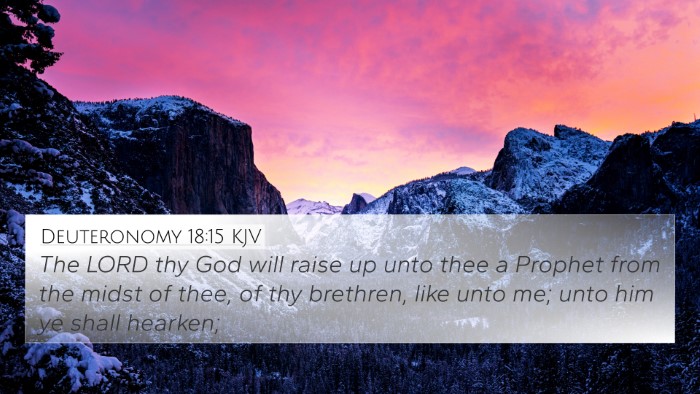Understanding Job 36:12
In Job 36:12, the verse states, "But if they obey not, they shall perish by the sword, and they shall die without knowledge." This verse emphasizes the significance of obedience to God's commands and the dire consequences of turning away from the truth.
Commentary Insights
- Matthew Henry: Henry notes that Elihu, the speaker in this context, underscores the importance of acknowledging God's sovereignty. He warns that disobedience can lead to destruction, suggesting that a failure to heed God's wisdom results in a life devoid of understanding.
- Albert Barnes: Barnes highlights that the "sword" may symbolize both literal and metaphorical dangers that await those who reject divine instruction. He proposes that the knowledge referenced in the verse represents both spiritual insight and a true understanding of life's value and purpose, which are lost to those who rebel against God.
- Adam Clarke: Clarke interprets this verse by stressing the fatality of ignorance paired with disobedience. He reflects on how God's revelation is intended for enlightenment and warns that those who remain unresponsive to divine guidance will experience spiritual and potentially physical demise.
Historical Context and Application
This verse is set within the discourse of Job's friends, particularly Elihu, who expresses a philosophical view on suffering and divine justice. It reveals a crucial theme of the biblical text: the relationship between human actions and divine consequences.
Analyzing Cross-References
Job 36:12 can be cross-referenced with several scripture passages that echo similar themes of obedience, consequences, and divine wisdom. Here are some notable connections:
- Deuteronomy 30:15-20: A call to choose life through obedience to God's commands.
- Proverbs 1:7: "The fear of the Lord is the beginning of knowledge." This suggests that wisdom is inherent in proper reverence for God.
- Isaiah 1:19-20: A promise of blessing for obedience contrasted with the consequences of rebellion.
- Matthew 7:24-27: The parable of the wise and foolish builders underscores the importance of acting on Jesus' teachings.
- Hebrews 10:26-27: A warning about the dire consequences of willful sin after receiving the knowledge of the truth.
- James 1:22: The call to be doers of the word highlights the necessity of obedience.
- Revelation 3:19: Christ's call to repentance emphasizes discipline and the urgency of heeding His words.
Connecting Themes in Scripture
Thematic Bible verse connections derived from Job 36:12 reveal a continuous dialogue across both the Old and New Testaments about the relationship between divine expectation and human response. This cross-referencing emphasizes the integrity of biblical instruction and the stern warning against negligence of God's commandments.
Conclusion
Job 36:12 serves as a somber reminder of the importance of obeying God to avoid spiritual demise. The insights from public domain commentaries offer a robust understanding of the text, integrating historical context and inter-Biblical narratives. To gain deeper knowledge, exploring the connections between Bible verses can provide clarity and enhance understanding of God's intentions towards humanity.










